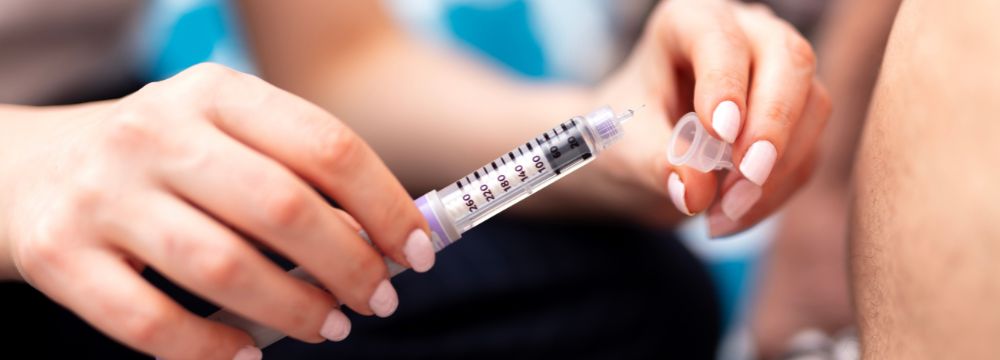Getting Off GLP-1s – Having a Game Plan

If you’ve been using GLP-1 medications like semaglutide (Ozempic, Wegovy, Mounjaro, or Zepbound), you might be wondering what it looks like to stop taking them. Maybe you’ve reached your health goals or are dealing with side effects that make you want to reconsider your options. Whatever the reason, getting off GLP-1 medications is a big decision that requires careful planning.
These medications are often prescribed to help manage type 2 diabetes or assist with weight loss. They mimic a hormone in your body that helps regulate blood sugar levels and appetite. But just like starting the medication was a big step, stopping it should be done thoughtfully and with guidance from your healthcare provider.
Step 1: Talk With Your Healthcare Provider
This may seem obvious to some, but you should always talk with your healthcare provider when you stop any medications. Everyone’s body is different, and your reasons for stopping the medication are unique. Your doctor can help you create a personalized plan, which might include gradually lowering your dose rather than stopping immediately, for example. This helps your body adjust without any sudden shocks to your system.
During this chat, make sure to discuss how to monitor your blood sugar levels and weight, as these might change as you taper off the medication. Your doctor might suggest more frequent check-ins to ensure everything is going smoothly.
Step 2: Stick to Your Lifestyle Changes
Lifestyle changes become even more important when you’re coming off a GLP-1 medication. Think of this as an excellent opportunity to double down on healthy habits. You don’t want to regain all the weight you’ve worked so hard to lose. You also want to avoid any possikble side effects that may happen because of quitting a GLP-1 medication cold turkey.
Diet is a biggie. Focus on balanced meals that keep your blood sugar steady and help you maintain your progress. This might mean sticking to the meal planning strategies that have worked for you while on the medication or trying new ones with your doctor’s guidance.
Exercise is another crucial piece of the puzzle. Regular physical activity can help manage both your weight and blood sugar levels. Find something you enjoy, whether it’s walking, swimming, or even a dance class—anything that gets you moving consistently.
Step 3: Try Alternative Treatment Options
Depending on why you started the GLP-1 medication, your doctor might suggest alternative treatments to keep you on track. There are other medications like metformin or SGLT-2 inhibitors that might be a good fit for managing blood sugar.
If your main focus is weight management, but you don’t qualify for bariatric surgery, consider exploring other options, including behavioral therapies or nutritional counseling. These alternatives can support and keep you moving toward your health goals, even without the GLP-1 medication.
If you qualify for bariatric surgery, consult with an experienced surgeon like Dr. Chang. There’s nothing to lose in learning more about this transformative option.
Step 4: Pay Attention to Your Body’s Response
As you transition off the medication, it’s important to monitor how your body responds. Regular check-ups with your healthcare provider will help catch any potential issues early. You might need to adjust your game plan along the way, and that’s perfectly normal.
Support is vital during this phase, too. Consider joining a support group, whether online or in person, to connect with others going through similar experiences. Sometimes, just knowing you’re not alone can make a big difference.
Watch for Challenges. Following these steps and understanding potential challenges is important for weaning off of GLP-1 medication. The three most common challenges are weight rebound, blood sugar swings, fear of relapse, and motivation.
- Because GLP-1 medication helps curb appetite and makes it easier to stick to the diet, once gone, appetite may increase. Focus on sustainable, long-term habits. Keep to the healthy eating and exercise routines you’ve established. If necessary, work with a nutritionist or dietitian who can help guide you through this transition. They may offer strategies for managing your appetite and feeling satisfied with the right foods.
- Blood sugar levels might fluctuate as you taper off the GLP-1 medication. It is essential to monitor your blood sugar levels and possibly increase the frequency of your level checks with your provider’s advice. By doing so, you will notice any significant changes so that you can alert your doctor, and together, you can devise a game plan to help stabilize your blood sugar levels.
- The journey to weight loss is not without its ups and downs, but when coming off GLP-1, you may fear a weight relapse. This anxiety can make the transition more difficult. It is okay to have these fears. Voice them with your doctor so they can create a plan to help you be successful. Focus on small things you can control, and you may find yourself less stressed.
Any difficult journey tests motivation, and weight loss is no different. Your motivation may waver when progress is slow or you fall off the wagon. When this happens, set new realistic goals so that you can celebrate the small victories and regain your confidence.
Following this game plan will give you the best chance of successfully transitioning off GLP-1 medication while staying on track with your health goals. Being prepared will help you combat challenges as they come up. Remember, it’s all about making informed decisions and working closely with your healthcare team. You can do this; have faith in yourself.

